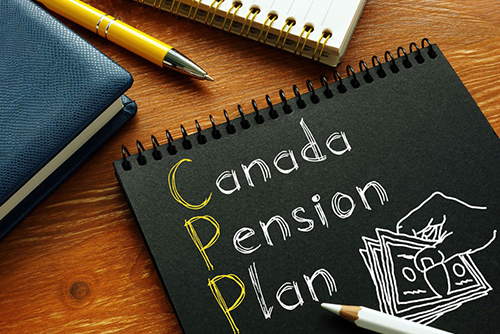Helping Seniors Find The Most Suitable Residence – Part 2
When people move out of their home, it is usually after they have tried remaining at home – at times with assisted living care – and have reached a point where this solution no longer works.
In some cases, home care lasts only for a limited time due to changes in the senior’s health condition and increasing additional needs. In other cases, the reason for the change may not be physical but rather due to social isolation, apathy, or loneliness.
Where do I start? Who can help?
When looking for the most suitable Residence for one’s next life chapter, there are many aspects to consider. Facility, comfort, activities, proximity to family, level of care, budget, demographics and so much more. Often, first-timers feel overwhelmed and uncertain as to which facility to visit, what to look out for, what questions to ask, or have nothing to compare with.
Often the local municipality will offer resources for seniors and housing options, though usually they mostly cover long term care facilities (regulated by the government). If you are looking for this information, please consult:
Ottawa: Community Information Centre Ottawa – Tel 613-761-9076
Kelona: Aging at Home, Moving to another care level. Another resource in Kelowna is the not-for-profit organization Seniors Outreach – Tel 250-861-6180
Montreal: Community Information Centre Montreal
Calgary: Community and Social Services Help Line
The search may become a little more complex when you are looking for a retirement home also for independent or semi-independent seniors. It may be helpful to consider the services of specialized agencies which are available in many parts of Canada. Placement agencies are compensated by all private Residences, so their service comes at no cost to you and they operate in a similar manner across the country.
Services such as Seniors Choice Montreal headed by Steve Besner, or Accès Résidences under Fabienne Coullerez’s guidance, provide an efficient way to search for the best Residence. Their services are free as they get compensated by the Residences.
Similar services are available in Ottawa and Kelowna as well. For example: Comfort Life – Servicing large sections of Canada
Or Tea & Toast, who work with 90 % of residences in the Ottawa area but offer services across Ontario.
How can such an agency control the quality of service at a Residence?
Some agencies have a dedicated evaluator who visits each Residence and assesses the quality of services, care, and facilities offered to seniors. The teams at both agencies mentioned above visit the facilities they recommend on a regular basis and follow up with each client.
Are placement agencies objective when advising seniors on the best Residence? Placement agencies are compensated by all private Residences, so they do not have an interest in suggesting one over another. Maintaining trust in the relationship with clients and their families is crucial to placement agencies’ reputation and referral business.
Types of Residences available to today’s seniors
While Assisted Living Residences and Nursing Homes have long been a solution for seniors who require care, in the past few years Autonomous Residences have increasingly been built and renovated to accommodate independent senior customers.
Autonomous Residences
Autonomous Residences service seniors who are able to function autonomously and manage all activities of daily living (ADL). Often times these seniors have their own car and may still have the ability to travel.
So why would these autonomous seniors consider a move to a Residence?
- Residences offer peace of mind for the senior and their family – Though they are in relatively good health, there is always the fear of an accident, a fall, blood pressure issues, etc. When in a Residence, a nurse or care worker arrives within a couple of minutes of a push of a button or pull of a cord on the emergency call system.
- An array of fun and interesting activities – These activities are designed to stimulate mind, body and spirit and are invaluable in maintaining a zest for life. Drama, art, music, field trips, athletics, lectures, movies, and bingo are some examples.
- The responsibility of maintaining a home is lifted – Shoveling snow, arranging home repairs, mowing the lawn, painting and renovating… these burdens are left behind in favour of living in a building with on-call maintenance experts.
- A Residence becomes a cure for loneliness and solitude – Residences offer all the privacy and personal space a senior may want while at the same time providing the option of joining a multitude of common areas and activities with other seniors or chatting with neighbours and friends at will.
- Cooking and cleaning dishes is optional – Residences offer the option of eating in the dining room for 1, 2 or 3 meals per day. Those who desire to continue preparing meals are welcome to do so.
- Residences provide a great venue for family visits and get–togethers – Whether it’s a one-on-one visit in the Residence library or a family birthday party in a private dining room, Residences provide an environment for seniors and their families to enjoy quality time together.
Assisted Living Residences
Assisted Living Residences provide various levels of care for seniors who need help with ADLs.
If a senior requires help with only one or two daily activities, they can often live in an Autonomous Residence or on an autonomous floor in a Residence and can purchase extra help from the Residence or via external private companies (home care).
When a senior needs help with many ADLs, it is time to move to the Assisted Living floor or, if not available in the current Residence, to move to an Assisted Living Residence where their needs can be met. They will still benefit from all the advantages of Residence living along with the extra help to make their days stress-free and comfortable.
Nursing and Memory Care Residences
These Residences provide full care until end of life. Nurses and care workers are available 24/7 and all ADLs are managed by the Residence. In a memory care situation such as Alzheimer’s or any form of dementia, these Residences (or special floors within Residences) have secure entrances and exits so the senior cannot wander off the floor or out of the building.
At this stage, many of the otherwise available activities are no longer appropriate. However, other adapted activities are offered instead, designed with the high-care or memory-challenged senior in mind.
Continuum of Care vs Specialized Residences
Some Residences cater to one specific type of senior (e.g. only equipped for an autonomous lifestyle or specialized in memory care). Other Residences offer a continuum of care whereby the senior can enter as a fully autonomous resident and move to different areas within the Residence as their needs change.
Many seniors/families prefer such continuum of care Residences since they allow them to remain in the same building and avoid a complete change of environment when care needs increase.
Helpful checklist while visiting a Residence
To choose between multiple Residences offering a similar level of care in the same geographic area, one should visit each Residence and make note of certain factors and criteria:
- Analyse the environment and the interactions between the staff and the residents.
- Do you like the location and outside appearance? As you tour the Residence, does it feel inviting and homelike?
- Ask the residents about how they like the community and staff.
- Do the residents seem to be appropriate housemates for you or your loved one?
- Unit accommodation – is heating/air conditioning individually controlled?
- What type of activities and amenities are offered?
- What level of healthcare services are offered (nurse, doctor visits, dietary services, physiotherapy, grooming, pharmacy, etc.)?
- Are visits welcomed at any time? Are grandchildren allowed to spend the night? Is there a charge?
- Does the Residence train staff on elder abuse and neglect? Is there a policy for reporting suspected abuse? Is there a camera surveillance system in place?
- Does the Residence have a designated area for residents with cognitive impairments such as Alzheimer’s disease? If so, is it secured?
- Does the Residence allow hospice care to come in and care for residents?
- What are the most common reasons a resident may be asked to move out of the community?
The role of a senior living consultant
Experienced senior living consultants work with various sizes of Residences, from autonomous to high care. Consultants can provide families with behind-the-scenes knowledge that is otherwise not accessible.
Seniors Choice Montreal can often negotiate a better price for their clients due to their long-standing relationship with Residences. The agency uses its valued connections with Residences, hospitals, social workers and nurses to provide personalized service and help with the necessary paperwork and government assistance applications.
Their team continues to support the family even after the senior has moved in. Sometimes occasional check-ins are enough; other times, such as when the senior’s family lives out of town, they depend on Seniors Choice Montreal to visit their loved one and provide regular updates.
Accès Résidences’ team of consultants visits the facilities it recommends and ensures they remain consistent over time. Their consultants are familiar with the ins and outs of each Residence and can help clients determine which Residence offers the best personalized response to their needs. All their consultants are members of the Quebec Association of Consultant for Services to Seniors (ACSAQ) and abide by their code of ethics. They service a large spectrum of communities in multiple languages and are attuned to their cultural sensibilities.
Residence costs
The average monthly rent for a standard unit in a Residence for seniors in Quebec was valued at $1,788 in 2019. In the Montreal area, private Residences’ monthly costs range from approximately $2,000 up to $8,000. This wide discrepancy in cost results from various factors including location, facilities, care level, size of room or apartment, number of meals included, and optional parking.
Generally speaking, the amount of care needed is the largest single factor influencing the monthly cost.
Conclusion
Placement agencies conduct a free initial consultation and assessment of the senior’s needs and later accompany the senior and their family on multiple visits to appropriate Residences as they search for the perfect fit. The agencies’ extensive knowledge of the industry and long-standing relationship with Residences is often invaluable and enables deeper insights, access to non-published details, and better long-term follow-ups. All of the above is made available without additional cost to the family – a win-win option to consider.




